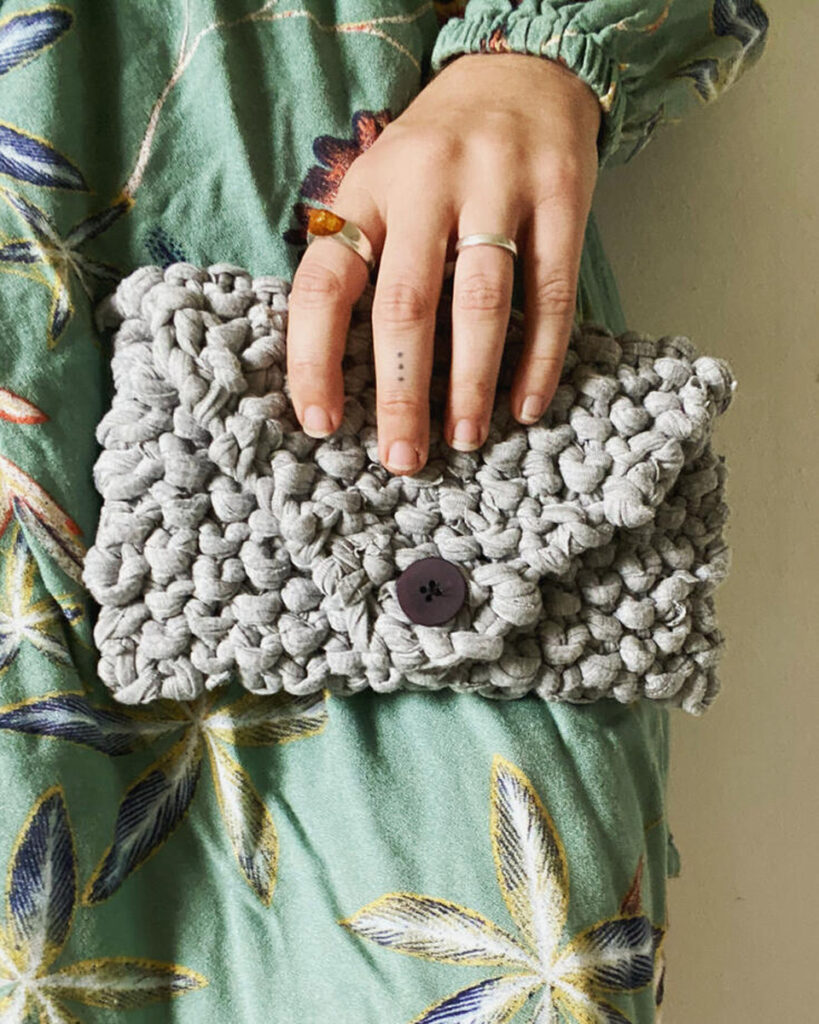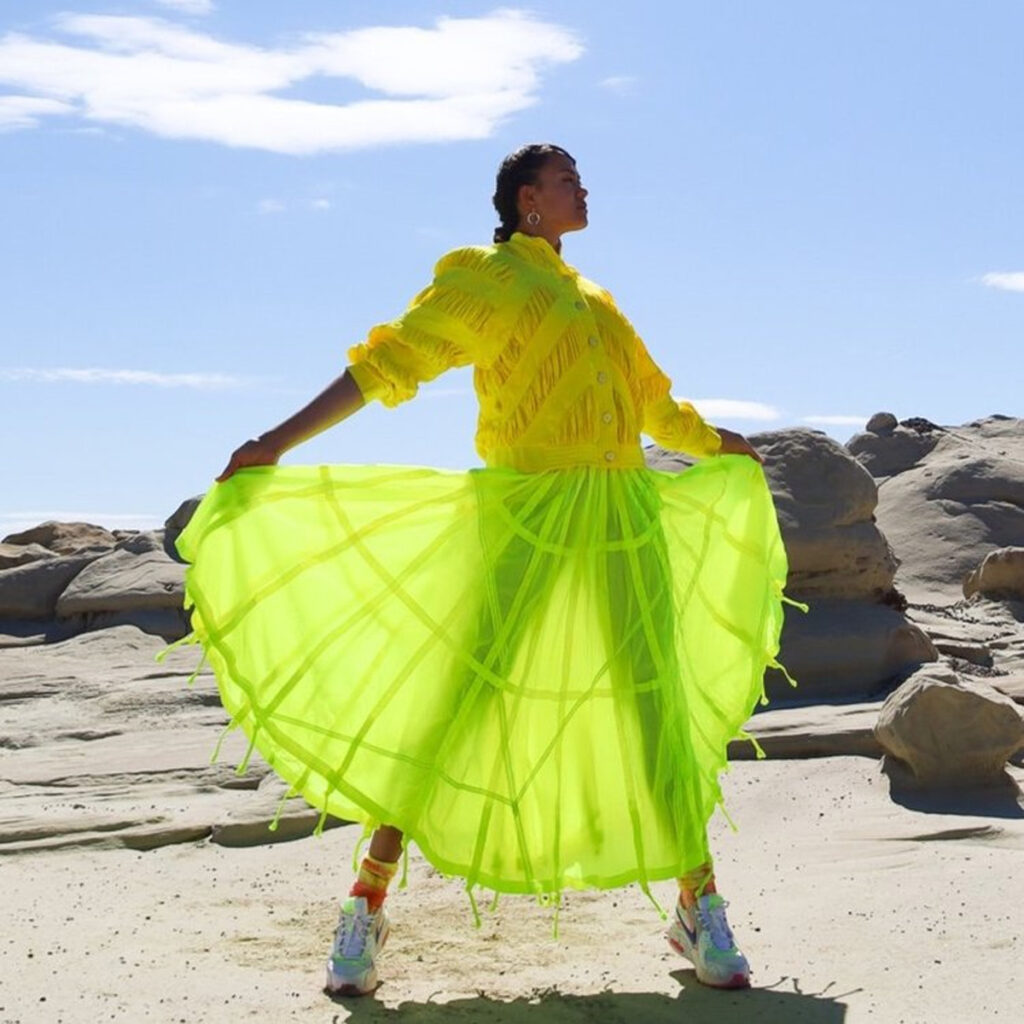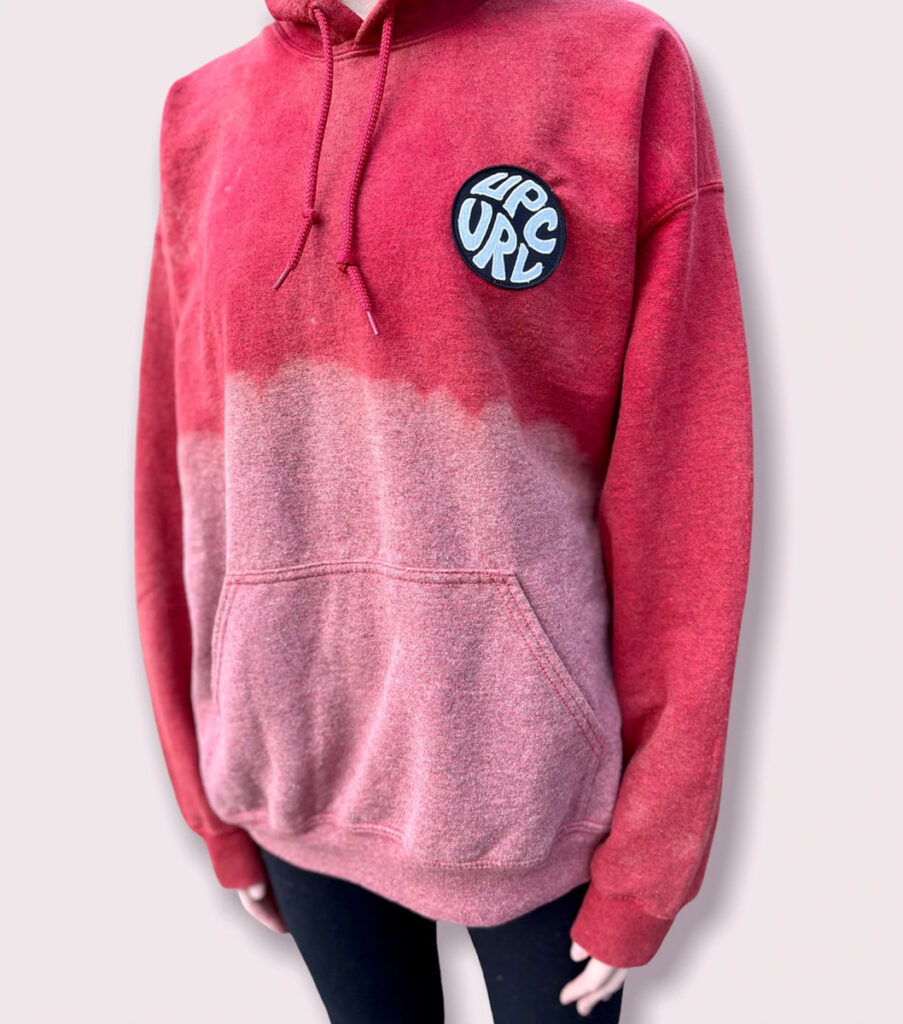Previously in this series, we counted the environmental costs of the mass fashion industry and explored alternatives to buying new clothes; clothing swaps, thrift shops, and consignment stores.
Now, we focus on an up-and-coming solution called upcycling, which Looptworks.com defines as “transforming discarded materials into new products of higher value and environmental purpose. Reusing whole materials takes far less energy than breaking down and remaking them. Upcycling offsets the resources needed to make new products from scratch.” And upcycled products are often creative works of fashionable art. Upcycling turns a pair of torn jeans into a denim vest. Discarded t-shirts become handbags.
Let us introduce you to three upcyling companies. Two of them are based in New Mexico, and their founders generously share their stories, intentions, methods, and markets.
Close to home, Giglet’s Garments (https://www.gigletsgarments.com/) is the Taos-based upcycling venture of Emi Wall. Wall transforms discarded clothing, salvaged from the CAV and Habitat for Humanity thrift stores, into crocheted pillows, totes, rugs, and purses. Used garments are cut into strips and fashioned into the yarn used by a team of “creators” to make these products. In another nod to sustainability, all leftover material is used to stuff pillows.

Giglet’s has a centralized production facility in Taos, to reduce the environmental burden of shipping materials and finished items back and forth across the country. Future expansion will establish similar localized hubs in other parts of the country.
Wall confirms that upcycling is a developing market, driven by younger consumers, who reward socially and environmentally responsible companies with repeat business. She offers e-commerce, but prefers to cultivate a local clientele through retail outlets, targeted advertising, and craft fairs.
Giglet’s team of local, independent creators is augmented through a partnership with the CAV women’s shelter, training client/residents who want to learn a trade and generate income. Wall’s production process accommodates those with physical, developmental, or social “barriers to employment.” Creators work their own hours, at home, at their own pace. Her crocheting techniques are easy to master and require no tools. She provides online and in-person tutorials to help her creators produce Giglet’s product line. Creators are encouraged to submit their own designs.
Wall has been advised to choose between environmental responsibility or employment opportunity for disadvantaged people, but she believes “it’s possible to do both, having the greatest positive impact on our community and the world.” For Wall, “Giglet’s Garments is all about responding to a need and tailoring our methods toward what will make the biggest difference for the planet and our people.”

Farther afield, 4kinship, (https://www.4kinship.com), based in the borderlands of New Mexico and Arizona, produces high-fashion garments from used clothing and fabrics, such as this skirt made of surplus parachute material.
Amy Denet Deal, born of the Diné (Navajo) people, was adopted out of that community as a child, and worked for 30 years in the fashion industry before reconnecting with her “indigeneity.” Her fashion brand celebrates Deal’s sense of belonging to one another and to the earth that sustains us. She aims to “produce things in a better way, opening the path for self-understanding and service.” For Deal, that better way is upcycling, “reimagining and re-creating what we have, joyfully and soulfully renewing unwanted things. From an indigenous perspective, sustainability is an ancient way of life, in balance with the land and the people.”
When the pandemic hit, Deal scaled back her business and focused on relief efforts on the Dinétah (“among the people”), distributing PPE, food, care packages for children, firewood for elders, and raising support for domestic abuse shelters.
Eventually, Deal resumed building her brand. The reach of this local company extends far beyond the Dinétah. Its web presence generates sales around the world. 4kinship has been profiled on PBS, The Today Show, The Daily Beast, and Vogue. Celebrity customers become partners, helping with fundraising and development of mutual aid projects.
4kinship sustains indigenous “creators,” from garment workers to administrators, photographers, models, staff at its retail outlet, and two interns. As the company grows, Deal gives back, devoting 50-60% of her time to community service. For Deal, upcycling is “not just about sustainable clothing, but a sustainable future for the community… creating love and light, practicing gratitude, leading from the heart and listening to the intuition, the clouds, and the land.”

Clear across the country, Upcurl (https://upcurlclothing.com/) is a fledgling online vendor of upcycled clothing aimed at the young adult market. Founder/Owners Sammy Johnson and Chad Varney are recent college graduates, whose environmental studies revealed the ecological burden of the fashion industry and led them to create Upcurl as an alternative to cheaply made, mass-produced, unsustainable clothing.
The two partners handle every aspect of the business, from design and manufacture to marketing and shipping, working with a single sewing machine and embroiderer. With graduation now behind them, they plan to rent production space in Boston, buy more equipment, and hire part-time help, including a marketing specialist.
Johnson and Varney confirm that interest in upcycled clothing is driven largely by younger consumers who are “increasingly aware of the environment and how their lives impact it.” People want a unique look as well, so upcycling’s emphasis on one-of-a-kind garments is a selling point. Says Varney,“People do not have to choose between being environmentally conscious and being fashionable.” Upcurl’s goal is to develop products that are 100% recyclable, made exclusively with organic fibers, using fully recyclable packaging and shipping materials.
Previously, due to school and work commitments, Johnson and Varney had to rely on suppliers of garments made with recycled materials. Now they plan to produce upcycled garments fully in-house. As the business grows, Johnson and Varney are exploring partnerships with retail outlets and hope to open a storefront.
They believe that the fashion industry needs to be turned upside down, with a completely different approach to the production of clothing, getting rid of harmful fibers and moving toward production on demand. Varney says, “We need to develop a method to rival [fast fashion].”
Upcycling is counter-cultural. Here in the Land of Enchantment, and beyond, people are drawn to alternative ways of doing things, especially when doing so builds community and cares for the planet. We owe these upcyclers our thanks and our business. Coming in July, you’ll be treated to an in-depth profile of Dyed and Reborn, a Questa-based upcycling project. Stay tuned!
More about upcycling:
https://www.looptworks.com/pages/what-is-upcycling
https://www.treehugger.com/what-is-upcycling-5116081
https://www.centerforecotechnology.org/using-upcycling-to-reimagine-used-materials/


